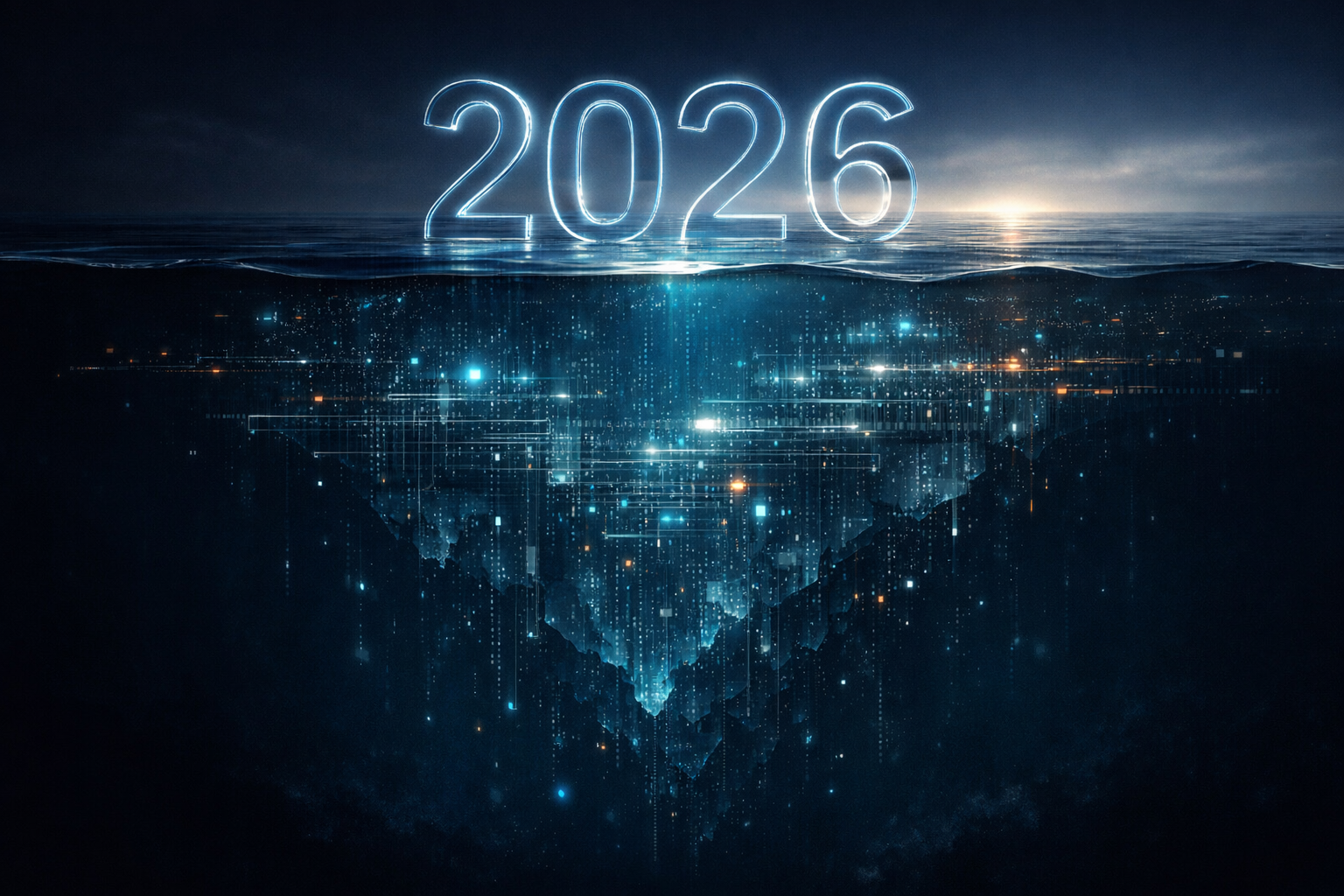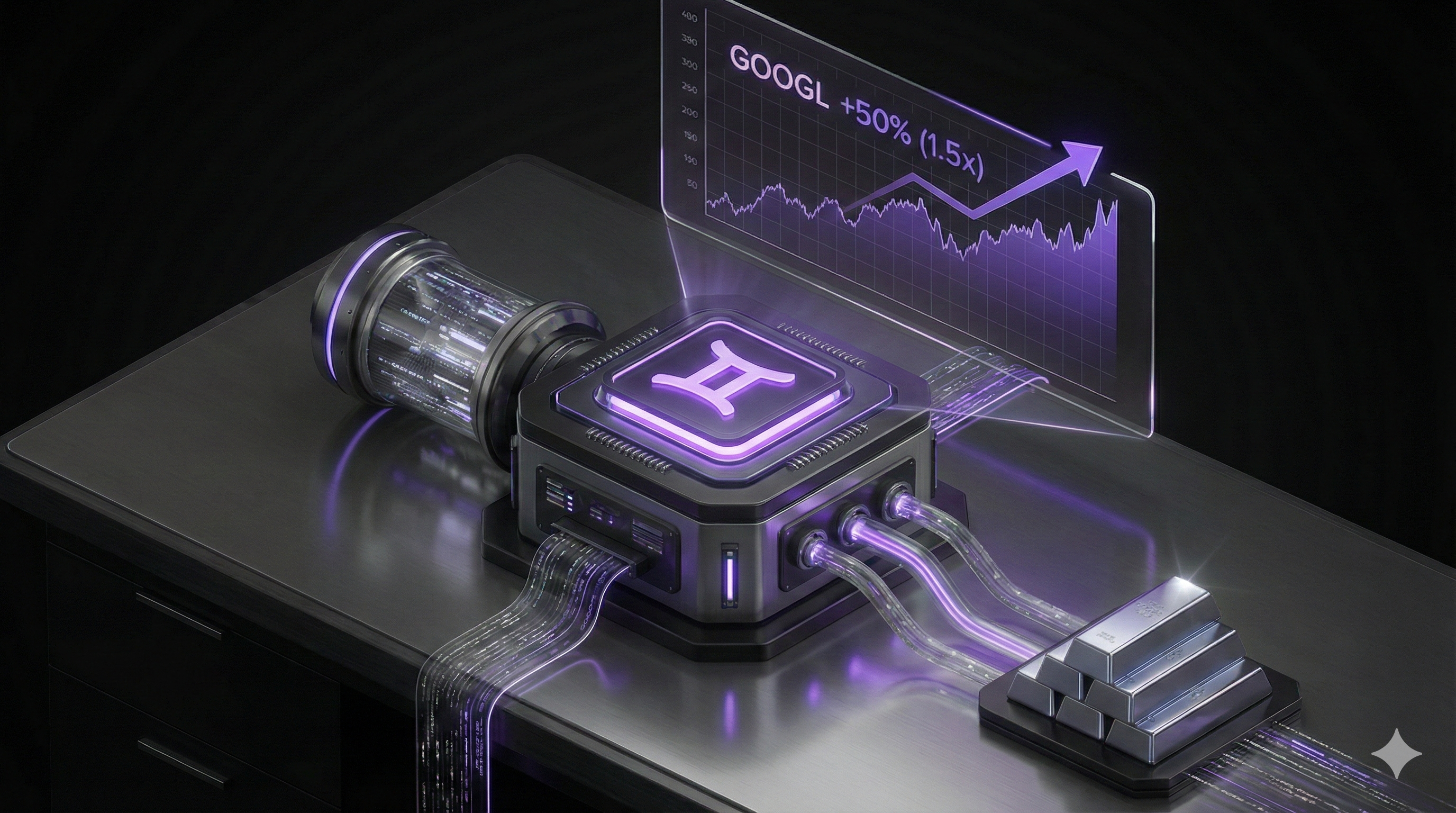THE PLEX EFFECT : The Battle for the Future of Search


Sash Mohapatra

Sash spent 20 years at Microsoft guiding enterprise clients through the cloud revolution and the rise of AI. Now, as the founder of The Rift, he’s on a mission to enhance human potential by helping people develop practical, future-ready AI skills. He writes from a place of deep curiosity, exploring what it means to stay human as machines reshape the world around us.
March 3, 2025






The first time I logged onto the internet was in the late 90s, over a sputtering dial-up connection. Back then, the internet felt small, almost quaint. Yahoo was my browser homepage—a hand-curated directory of websites, not a search engine in the way we think of them now. There was no web crawling. You searched within Yahoo's directory, hoping someone had indexed what you were looking for. It was messy, human, and oddly charming.
Then came the .com boom. Suddenly, websites were springing up by the hundreds, and the internet’s structure outgrew the human hands that tried to organize it. Search needed a rethink. Altavista offered a breakthrough—natural language search and the ability to add or remove domains. MSN joined the fray. Yahoo acquired Altavista. It was the Wild West of web discovery.
And then, in 1998, Google went live.
Subscribe now to unlock the full article and gain unlimited access to all premium content.
SubscribeThe first time I logged onto the internet was in the late 90s, over a sputtering dial-up connection. Back then, the internet felt small, almost quaint. Yahoo was my browser homepage—a hand-curated directory of websites, not a search engine in the way we think of them now. There was no web crawling. You searched within Yahoo's directory, hoping someone had indexed what you were looking for. It was messy, human, and oddly charming.
Then came the .com boom. Suddenly, websites were springing up by the hundreds, and the internet’s structure outgrew the human hands that tried to organize it. Search needed a rethink. Altavista offered a breakthrough—natural language search and the ability to add or remove domains. MSN joined the fray. Yahoo acquired Altavista. It was the Wild West of web discovery.
And then, in 1998, Google went live.
PageRank changed everything. Google didn’t just index the internet—it understood it. Or at least, it did a far better job of organizing the chaos than anything before it. Its minimalist design, uncanny accuracy, and blazing speed earned trust instantly. Over the years,
Google became synonymous with search. For billions of people—including me—it became the default gateway to knowledge, curiosity, and productivity.
But habits, no matter how entrenched, can be disrupted. And I think we’re in one of those moments again.
The Plex Effect: A New Habit Takes Shape
Today, Google dominates search with about 90% of global market share, handling billions of queries daily. Its search business brought in over $160 billion in ad revenue last year alone. Google owns the default behavior. It is habit incarnate.
And yet, in a corner of the internet, a new kind of search is quietly gaining ground.
Perplexity AI, founded in 2022, now handles over 15 million queries a day and has grown to 15 million monthly active users as of early 2025. It recently raised $500 million at an $8 billion valuation and is now reportedly in talks to raise an additional $1 billion at a staggering $18 billion valuation, with backers including Nvidia and Jeff Bezos. In just a year, it’s become arguably the only true challenger to Google’s grip on how we find answers online.
Why? Because it’s not just doing what Google does. It’s rethinking what search is.
Where Google gives you a list of links, Perplexity gives you an answer. No ads. No SEO games. Just a conversational, cited response that feels like a well-read researcher did the legwork for you.
At first, I kept defaulting to Google. But slowly, Perplexity’s experience won me over. It wasn’t just the speed—it was the clarity. The act of searching started to fade. I wasn’t navigating—I was knowing.
This shift isn’t just technical—it’s behavioral. It's what I now call The Plex Effect—a behavioral shift where search becomes instant, contextual, and deeply personal. Instead of combing through options, you ask and immediately receive. It’s a shift from using the internet as a directory to treating it like a conversation.
The more I used Perplexity, the more I expected that kind of clarity everywhere. It’s the feeling behind the phrase their CEO, Aravind Srinivas, tweeted in September 2024: Just Plex it. A simple, cheeky nod to the idea that searching could feel so intuitive and instant, it becomes second nature.'

And with the announcement of Comet, its own AI-powered browser, Perplexity is stepping into the ring with Chrome—the most used browser on the planet. That’s not just bold. It’s strategic. If Perplexity nails the experience, it could bypass Google’s dominance not by replacing habits, but by forming entirely new ones.
Imagine browsing the web in Comet, bookmarking what you love. That data feeds into your personal Perplexity profile. It remembers, learns, and evolves. You return weeks later, and your search isn’t just smarter—it’s you-smart. Contextual. Personal. This is a future where search doesn’t just retrieve—it reflects.
A Fork in the Business Model
Of course, nothing is truly free. Perplexity recently announced that it’s experimenting with advertising—not by cluttering its clean interface, but by introducing carefully placed sponsored follow-up questions and paid media alongside answers. This rollout starts in the U.S. and is framed not as a pivot, but as a long-term strategy for sustainability.
Importantly, Perplexity emphasizes that advertiser influence will not affect the content of answers. Sponsored content will be clearly marked, and answers to sponsored prompts will still be generated by the same AI system—not by brands or marketers. Their stated goal: preserve utility, clarity, and trust.
They’ve already partnered with major brands like Indeed, Whole Foods, and Universal McCann. And instead of re-creating SEO-like tactics, Perplexity is proposing something new: let brands spark curiosity without trying to hijack the answer.
The reason for this shift is clear. Subscriptions alone haven’t proven sufficient to support AI infrastructure and publisher partnerships. Ads are the most scalable revenue stream—and done right, they could actually benefit both users and creators.
Still, it’s a delicate balance. If ads begin to feel intrusive or influence results, it risks eroding what made Perplexity compelling in the first place. But if the company holds to its promise—that ads will complement, not corrupt, the experience—it might pull off something rare: monetization that respects the user.
As Perplexity puts it, this is an experiment. But so far, it’s one with a clear principle: revenue can scale without selling out the experience.
The Conversational Shift
So much of what’s changing isn’t just technical—it’s experiential.
With Perplexity, you don’t just get an answer—you can ask a follow-up. You can say "explain that more simply," or "compare it with last year’s data," and the engine responds in context. It remembers. It chats. It evolves with you.
This style of interaction mirrors a broader shift in how we engage with technology. From voice assistants to customer support bots to AI copilots, we’re steadily moving toward conversational interfaces. According to Gartner, by 2026, over 50% of enterprises will have implemented conversational AI platforms in some form—up from less than 20% in 2022. People are being trained to speak to machines—and expect them to speak back intelligently.
It’s not just about getting the right answer; it’s about having a back-and-forth. A session that evolves with your line of thinking. Traditional search engines aren’t built for that kind of dynamic engagement. They’re static, one-and-done.
And we’re seeing this shift across the board. OpenAI now offers integrated search via ChatGPT when browsing is enabled, Claude recently added web access with real-time citations, and Microsoft’s Copilot blends generative answers with live results. These aren’t just chatbots—they’re becoming gateways to information. LLM providers are effectively turning assistants into answer engines.
As users become more comfortable speaking with AI, the expectation shifts from searching to conversing. And when AI models can blend context, memory, and retrieval in a natural flow, search stops being a one-off task and starts becoming an ongoing interaction.
Conversational search, when done right, feels like knowledge that unfolds. It’s not just about what you find—it’s about how it’s revealed. And that is where AI-native tools like Perplexity are beginning to shine.
Where It All Might Be Heading
Search isn’t dying—it’s transforming. And not into something more complicated, but into something more human.
We’re moving away from the cold precision of keywords toward the warmth of dialogue. The interface of the future isn’t a search bar—it’s a companion. A responsive, evolving assistant that knows what you care about, remembers your past, and guides you forward.
This has profound implications. SEO strategies, content hierarchies, and the very idea of ranking may fade in importance. Instead, we’ll be asking: is your insight part of the AI’s worldview? Is your brand, your voice, your knowledge woven into the engine’s corpus?
In this emerging landscape, Google isn’t standing still—but it is constrained. Its legacy model depends on user engagement with ads. Every time an AI provides a perfect answer without a click, it challenges the very model that built Google's empire.
Perplexity, on the other hand, is unburdened by that past. It doesn’t need to retrofit AI into an ad-first structure—it can build around the user from the start. Of course, the road ahead is complex. Revenue models must evolve. Trust must be preserved. And user behavior is hard to change.
But the Plex Effect is real. And if it continues to grow—if people shift from Googling to Plexing—we may look back on this moment as the beginning of a new era. An era where knowledge isn’t something you search for. It’s something that finds you.
The first time I logged onto the internet was in the late 90s, over a sputtering dial-up connection. Back then, the internet felt small, almost quaint. Yahoo was my browser homepage—a hand-curated directory of websites, not a search engine in the way we think of them now. There was no web crawling. You searched within Yahoo's directory, hoping someone had indexed what you were looking for. It was messy, human, and oddly charming.
Then came the .com boom. Suddenly, websites were springing up by the hundreds, and the internet’s structure outgrew the human hands that tried to organize it. Search needed a rethink. Altavista offered a breakthrough—natural language search and the ability to add or remove domains. MSN joined the fray. Yahoo acquired Altavista. It was the Wild West of web discovery.
And then, in 1998, Google went live.
PageRank changed everything. Google didn’t just index the internet—it understood it. Or at least, it did a far better job of organizing the chaos than anything before it. Its minimalist design, uncanny accuracy, and blazing speed earned trust instantly. Over the years,
Google became synonymous with search. For billions of people—including me—it became the default gateway to knowledge, curiosity, and productivity.
But habits, no matter how entrenched, can be disrupted. And I think we’re in one of those moments again.
The Plex Effect: A New Habit Takes Shape
Today, Google dominates search with about 90% of global market share, handling billions of queries daily. Its search business brought in over $160 billion in ad revenue last year alone. Google owns the default behavior. It is habit incarnate.
And yet, in a corner of the internet, a new kind of search is quietly gaining ground.
Perplexity AI, founded in 2022, now handles over 15 million queries a day and has grown to 15 million monthly active users as of early 2025. It recently raised $500 million at an $8 billion valuation and is now reportedly in talks to raise an additional $1 billion at a staggering $18 billion valuation, with backers including Nvidia and Jeff Bezos. In just a year, it’s become arguably the only true challenger to Google’s grip on how we find answers online.
Why? Because it’s not just doing what Google does. It’s rethinking what search is.
Where Google gives you a list of links, Perplexity gives you an answer. No ads. No SEO games. Just a conversational, cited response that feels like a well-read researcher did the legwork for you.
At first, I kept defaulting to Google. But slowly, Perplexity’s experience won me over. It wasn’t just the speed—it was the clarity. The act of searching started to fade. I wasn’t navigating—I was knowing.
This shift isn’t just technical—it’s behavioral. It's what I now call The Plex Effect—a behavioral shift where search becomes instant, contextual, and deeply personal. Instead of combing through options, you ask and immediately receive. It’s a shift from using the internet as a directory to treating it like a conversation.
The more I used Perplexity, the more I expected that kind of clarity everywhere. It’s the feeling behind the phrase their CEO, Aravind Srinivas, tweeted in September 2024: Just Plex it. A simple, cheeky nod to the idea that searching could feel so intuitive and instant, it becomes second nature.'

And with the announcement of Comet, its own AI-powered browser, Perplexity is stepping into the ring with Chrome—the most used browser on the planet. That’s not just bold. It’s strategic. If Perplexity nails the experience, it could bypass Google’s dominance not by replacing habits, but by forming entirely new ones.
Imagine browsing the web in Comet, bookmarking what you love. That data feeds into your personal Perplexity profile. It remembers, learns, and evolves. You return weeks later, and your search isn’t just smarter—it’s you-smart. Contextual. Personal. This is a future where search doesn’t just retrieve—it reflects.
A Fork in the Business Model
Of course, nothing is truly free. Perplexity recently announced that it’s experimenting with advertising—not by cluttering its clean interface, but by introducing carefully placed sponsored follow-up questions and paid media alongside answers. This rollout starts in the U.S. and is framed not as a pivot, but as a long-term strategy for sustainability.
Importantly, Perplexity emphasizes that advertiser influence will not affect the content of answers. Sponsored content will be clearly marked, and answers to sponsored prompts will still be generated by the same AI system—not by brands or marketers. Their stated goal: preserve utility, clarity, and trust.
They’ve already partnered with major brands like Indeed, Whole Foods, and Universal McCann. And instead of re-creating SEO-like tactics, Perplexity is proposing something new: let brands spark curiosity without trying to hijack the answer.
The reason for this shift is clear. Subscriptions alone haven’t proven sufficient to support AI infrastructure and publisher partnerships. Ads are the most scalable revenue stream—and done right, they could actually benefit both users and creators.
Still, it’s a delicate balance. If ads begin to feel intrusive or influence results, it risks eroding what made Perplexity compelling in the first place. But if the company holds to its promise—that ads will complement, not corrupt, the experience—it might pull off something rare: monetization that respects the user.
As Perplexity puts it, this is an experiment. But so far, it’s one with a clear principle: revenue can scale without selling out the experience.
The Conversational Shift
So much of what’s changing isn’t just technical—it’s experiential.
With Perplexity, you don’t just get an answer—you can ask a follow-up. You can say "explain that more simply," or "compare it with last year’s data," and the engine responds in context. It remembers. It chats. It evolves with you.
This style of interaction mirrors a broader shift in how we engage with technology. From voice assistants to customer support bots to AI copilots, we’re steadily moving toward conversational interfaces. According to Gartner, by 2026, over 50% of enterprises will have implemented conversational AI platforms in some form—up from less than 20% in 2022. People are being trained to speak to machines—and expect them to speak back intelligently.
It’s not just about getting the right answer; it’s about having a back-and-forth. A session that evolves with your line of thinking. Traditional search engines aren’t built for that kind of dynamic engagement. They’re static, one-and-done.
And we’re seeing this shift across the board. OpenAI now offers integrated search via ChatGPT when browsing is enabled, Claude recently added web access with real-time citations, and Microsoft’s Copilot blends generative answers with live results. These aren’t just chatbots—they’re becoming gateways to information. LLM providers are effectively turning assistants into answer engines.
As users become more comfortable speaking with AI, the expectation shifts from searching to conversing. And when AI models can blend context, memory, and retrieval in a natural flow, search stops being a one-off task and starts becoming an ongoing interaction.
Conversational search, when done right, feels like knowledge that unfolds. It’s not just about what you find—it’s about how it’s revealed. And that is where AI-native tools like Perplexity are beginning to shine.
Where It All Might Be Heading
Search isn’t dying—it’s transforming. And not into something more complicated, but into something more human.
We’re moving away from the cold precision of keywords toward the warmth of dialogue. The interface of the future isn’t a search bar—it’s a companion. A responsive, evolving assistant that knows what you care about, remembers your past, and guides you forward.
This has profound implications. SEO strategies, content hierarchies, and the very idea of ranking may fade in importance. Instead, we’ll be asking: is your insight part of the AI’s worldview? Is your brand, your voice, your knowledge woven into the engine’s corpus?
In this emerging landscape, Google isn’t standing still—but it is constrained. Its legacy model depends on user engagement with ads. Every time an AI provides a perfect answer without a click, it challenges the very model that built Google's empire.
Perplexity, on the other hand, is unburdened by that past. It doesn’t need to retrofit AI into an ad-first structure—it can build around the user from the start. Of course, the road ahead is complex. Revenue models must evolve. Trust must be preserved. And user behavior is hard to change.
But the Plex Effect is real. And if it continues to grow—if people shift from Googling to Plexing—we may look back on this moment as the beginning of a new era. An era where knowledge isn’t something you search for. It’s something that finds you.


.svg)


